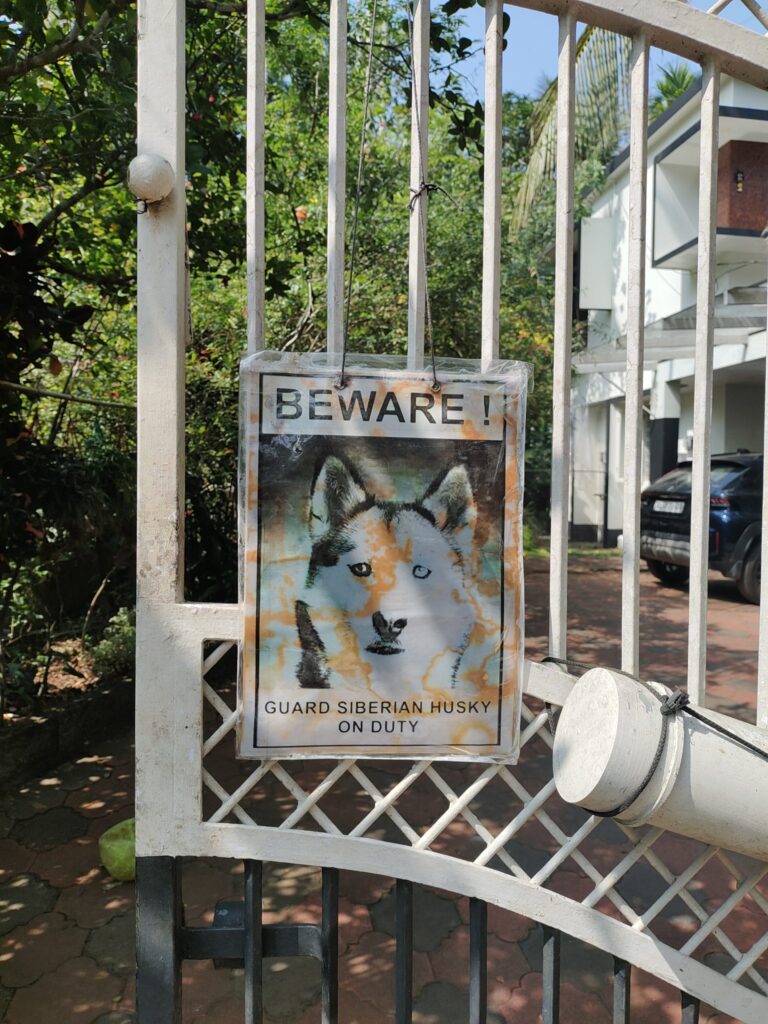Far from being an isolated player, the modern farmer is at the heart of a complex network of economic relationships. He engages in dialogue, negotiation and contracts with his suppliers upstream, his customers downstream (cooperatives, manufacturers, distributors, consumers), and has to deal with a dense regulatory framework, including competition rules. The way in which these relationships are legally governed is crucial to the viability and development of the farm. This context is part of the broader legal framework for contemporary agriculture.
This article looks at the main rules governing farmers' involvement in the market. We look at specific contracts such as integration contracts, the often tense relations with supermarkets, the mechanisms designed to rebalance negotiations through contractualisation and mediation, the contracts signed with the authorities to support certain practices, and lastly, the special rules governing agriculture under competition law.
Integration contracts: providing a framework for economic dependence
In many sectors (soil-less livestock farming, vegetables for industry, etc.), farmers work in an "integrated" context. This means that they are part of a supply chain organised by an agro-industrial company (the integrator), which often supplies them with inputs (animals, seeds, feed, etc.), imposes very precise technical production standards, and in return undertakes to buy their produce. While this system may offer some security of outlets, it also places the farmer in a situation of strong economic and legal dependence. For a detailed definition of what an agricultural integration contract isIf you would like to find out more about the Group, its fundamental principles and key obligations, please consult our dedicated article.
Aware of the risk of abuse linked to this imbalance, the legislator intervened as early as 1964 (Act of 6 July 1964, codified in articles L. 326-1 et seq. of the French Rural Code) to try to regulate these "standard integration contracts". The law aimed to protect the "integrated" farmer by imposing a number of compulsory clauses in the contracts and allowing professional organisations to propose "standard contracts" approved by the authorities for each product. These standard contracts were intended to define the obligations and risks of each party more fairly.
In practice, although the legal framework exists, its application has remained limited. Few standard contracts have actually been approved and applied outside certain livestock sectors. Protection for integrated farmers is therefore often based more on individual or collective negotiation and the general rules of contract law than on this specific system, even if it does provide a useful legal basis in the event of a dispute. To find out more about collective tools and how judges take economic dependence into account, read our analysis of group integration contracts.
Relations with mass retailers: a stronger framework
The concentration of food retailing in the hands of a few major chains has created a balance of power that is often unfavourable to agricultural producers during trade negotiations. Pressure on prices, demands for back margins, commercial practices deemed abusive... there are many areas of tension. Faced with this situation, a number of laws have been passed to strengthen the framework for relations between agricultural suppliers and supermarkets, mainly by amending the French Commercial Code.
- Control of advertising and promotional operations: they must mention the origin of the products and may be subject to interprofessional agreements (article L. 441-2-1 of the French Commercial Code). The idea is to avoid devaluing or misleading promotions.
- Special rules for commercial cooperation contracts: these contracts, which formalise the services provided by the distributor to the supplier (product promotion, etc.) in return for remuneration, are subject to specific conditions for perishable agricultural products or products from short cycles (article L. 441-2-1).
- Ban on remote reverse auctions: this practice, in which buyers organise a "top-down" electronic competition between suppliers on price, is banned for the purchase of certain agricultural products and foodstuffs for everyday consumption (article L. 442-10 III of the French Commercial Code). It was accused of excessively driving down prices.
These measures, supplemented by other more recent laws (such as the Egalim laws), aim to introduce greater transparency and balance into these complex commercial relationships, even if their effectiveness on the ground remains a subject of constant debate.
Contractualisation and mediation: towards more balanced relations?
In a complementary move, the legislator has sought to promote more stable and transparent commercial relations upstream of distribution, between producers and their primary buyers (cooperatives, manufacturers). The Agriculture Modernisation Act of 2010 and the Agriculture Future Act of 2014 have strengthened the requirement for written contracts.
Article L. 631-24 of the French Rural Code stipulates that, for certain agricultural products intended for resale or processing (the list is set by decree, and includes cow's milk, fruit and vegetables, etc.), the sale must be subject to a medium- or long-term written contract, or at least a written contract proposal from the buyer. The stated aim is to secure business volumes, provide greater visibility for producers and combat excessive price volatility by incorporating production cost or market indicators into price formulas.
These contracts must include mandatory clauses on duration, volumes, product characteristics, collection or delivery arrangements, criteria and procedures for determining price, and rules applicable in the event of force majeure. Specific protection is provided for producers who have been contracted for less than five years: in principle, the buyer cannot break the contract before its minimum term, barring exceptions.
To support this contractualisation and resolve any disputes that may arise, the law has also created a "Mediator for agricultural trade relations" (articles L. 631-27 et seq. of the French Rural Code). Any dispute relating to the conclusion or performance of a contract for the sale of agricultural products may be referred to this mediator. It can make recommendations, issue opinions on cross-cutting issues (such as the sharing of added value in the industry), and even refer cases to the Commission d'examen des pratiques commerciales (Commercial Practices Review Board). Recourse to mediation is optional for disputes over performance (the parties may prefer the courts or arbitration if provided for), but it becomes compulsory in the event of a dispute over contract renegotiation, unless arbitration is used. Recognised producer organisations (POs) can also play a role by representing their members in these mediations or in court.
Government contracts: supporting sustainable practices
In addition to purely commercial relations, farmers also interact with the authorities via contractual arrangements designed to steer farming practices towards objectives of general interest, particularly environmental objectives. After the experience of the "Contrats Territoriaux d'Exploitation" (CTE) launched in 1999 and now abandoned, the main current tool is the "Mesures Agroenvironnementales et Climatiques" (MAEC), often called agri-environmental commitments, governed by European law (as part of the CAP) and adapted in France (articles D. 341-7 et seq. of the Code rural for certain aspects).
The principle is based on a voluntary commitment by the farmer: for a fixed period (often 5 years), he agrees to comply with precise specifications that go beyond the basic regulatory requirements (e.g. conversion to organic farming, maintenance of permanent grassland, reduction of inputs, planting of hedgerows, etc.). In return for these commitments and the additional costs or loss of income they generate, the farmer receives compensatory financial aid, co-financed by the European Union and the State. These contracts are a major instrument in public policy aimed at encouraging more sustainable agriculture.
Agriculture and competition law: an exceptional regime?
One question that often comes up is whether agriculture, with its specific characteristics, escapes the competition rules that apply to all other economic activities. The answer is nuanced.
The general principle, laid down both by French law (article L. 410-1 of the French Commercial Code) and by European law, is that agricultural production and marketing activities are subject to competition law (prohibition of illegal agreements, abuse of a dominant position, etc.). Farmers are considered to be "businesses" within the meaning of this law.
However, this principle is subject to a number of important exceptions and adjustments in recognition of the sector's specific characteristics:
- At European level: Since the Treaty of Rome (articles 32 and 34 of the Treaty on the Functioning of the EU), the Common Agricultural Policy (CAP) itself has had the objective of organising agricultural markets. Historically, the Common Market Organisations (CMOs) put in place mechanisms (guaranteed prices, quotas, massive subsidies, etc.) which largely departed from the free play of competition. A specific regulation (EEC Regulation 26/62) specified the application of competition rules to agriculture, exempting certain practices necessary to achieve the objectives of the CAP, under the supervision of the European Commission. Although the CAP has moved towards aid that is more decoupled from production, the principle of a specific system for agriculture remains.
- In France : Article L. 420-4 of the French Commercial Code, which provides a general exemption for anti-competitive practices that contribute to economic progress, contains a specific provision for agriculture. It allows farmers to collectively organise volumes, quality and even commercial and marketing policy under a single brand or trade name. agreeing a common sale priceprovided that these restrictions of competition are essential to achieve the objective of progress and do not make it possible to eliminate competition in respect of a substantial part of the products. This is an important derogation, but it is strictly regulated.
- Cross-industry agreements : The Rural Code (Book VI) also provides a framework for "inter-trade agreements" concluded within a sector (for example, between producers, processors and distributors). Under certain conditions, and if they are extended by the public authorities, these agreements may include rules that derogate from ordinary competition law, particularly in times of crisis or to manage products with an official quality label (AOC, Label Rouge, etc.). Here again, there is a risk of these tools being used to artificially restrict supply and maintain high prices, which requires vigilance on the part of the competition authorities.
- Specific illustrations : The dairy industry is a case in point. Following tensions over the publication of price indicators by the interprofessional body (the CNIEL), the law (article L. 632-14 of the Rural Code) finally explicitly authorised the dissemination of "trend indices" to enlighten stakeholders, marking a recognition of the need for a degree of coordination in this sector.
In short, while agriculture is not excluded from the field of competition, it benefits from a special regime, justified by its specific characteristics, but which remains under surveillance to avoid excessive protectionist or anti-competitive excesses. Agricultural unions and groups play an active role in defining and implementing these specific rules.
Navigating this complex contractual and regulatory environment requires a sound knowledge of your rights and obligations. Whether it's negotiating a contract, dealing with unfair commercial practices or understanding the competition rules applicable to your sector, our firm can help you.
Sources
- Code rural et de la pêche maritime :
- Integration contracts: L. 326-1 et seq.
- Contractualisation and mediation: L. 631-24, L. 631-27 et seq.
- Agri-environmental commitments: D. 341-7 et seq.
- Cross-industry agreements : Book VI
- Dairy sector (CNIEL) : L. 632-14
- Commercial Code :
- Scope of competition: L. 410-1
- Competition exceptions: L. 420-4
- Commercial relations distribution: L. 441-2-1, L. 442-10 III
- Treaty on the Functioning of the European Union (TFEU) : Articles 32, 34 (ex-articles 38, 39 TEC)
- Council Regulation (EEC) No 26/62 of 4 April 1962




